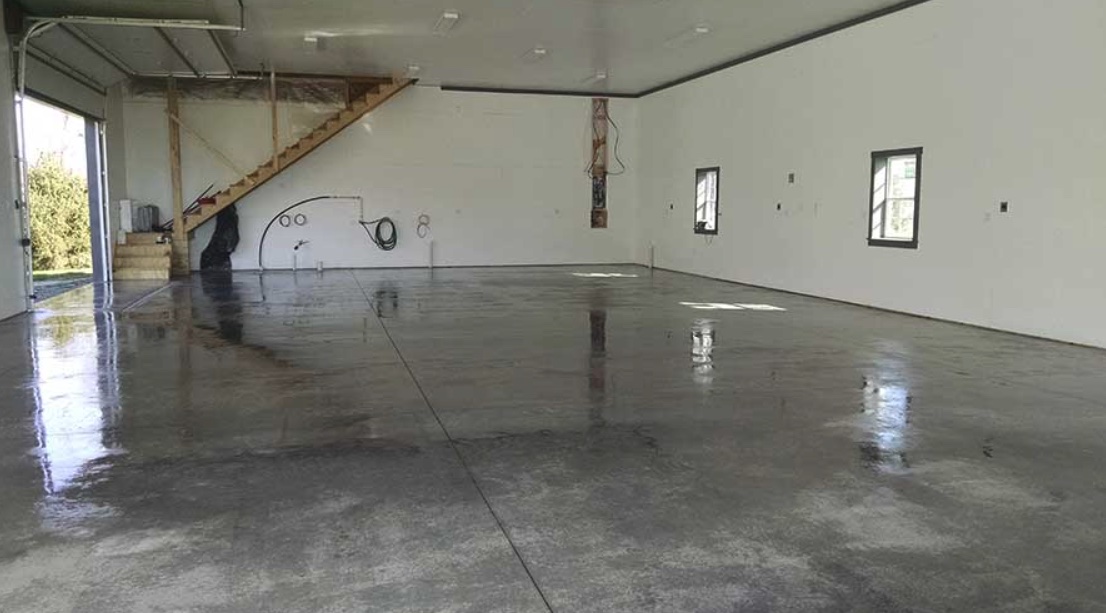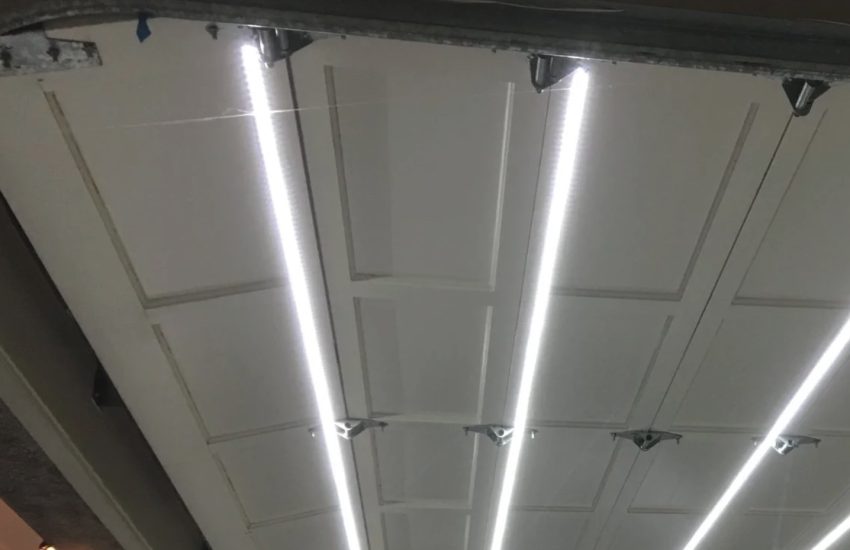The Pros and Cons of Sealing a Garage Floor
Garage floors are probably the most high-traffic floors in most houses. As a result, it is exposed to very harsh treatment such as carrying the weight of the vehicle, foot traffic, oil and chemical spills, physical damage, and exposure to extreme weather conditions.
These are the common reasons why contractors always recommend garage floor sealing. But unfortunately, not everyone knows the good and bad of sealing your garage floor.
Sealers protect your concrete garage floor, prolong its lifespan, make cleaning easier, and improve aesthetics. Unfortunately, there are some downsides to garage floor sealing, such as its an expensive project to start and maintain, and it also exposes people and pets to harmful chemicals that could cause allergic reactions.
Read on to learn more about the disadvantages and advantages of sealing your garage floor and important questions to check out.
Pros of sealing garage floors
There are excellent benefits to sealing your garage floors; they include;
Prevents staining
When owning a garage, oil and chemical spillage and staining come with the territory. The oils and chemicals will seep through the concrete surface and form difficult-to-remove stains. Therefore, adding a sealant on your garage floors helps prevent the concrete floor from absorbing stains.
Easy to clean
Sealers make your garage floors non-penetrative by adding a protective surface layer on your concrete floors. Cleaning sealed concrete floors is much easier with detergent and warm water and with less elbow grease.
Improves aesthetics
Depending on the sealer you use, your floors will look aesthetically pleasing. Concrete slabs are naturally dull-looking, but, for instance, epoxy floor sealer will give your floor a polished, glossy finish. It also hides imperfections on the floor.
Repels moisture
Concrete is a very porous material. Sealing your garage floor will prevent moisture from seeping into your garage floors. When moisture penetrates concrete during winter, it will turn to ice, expand and start forming cracks and reduce the lifespan of the garage floor. On the other hand, moisture can promote the growth of mold and bacteria, which can be a health risk and stain the floors.
Although pricey, epoxy floor sealers are excellent at preventing spalling during winter due to freeze-thaw damage.
Increases durability
Sealing will extend the lifespan of your garage floors as it acts as a layer of protection from damage by the usual wear and tear. In addition, it will protect your garage floors from physical damage from the car weight, dropping heavy tools, corrosion from chemical spills, foot traffic, and the effects of weather fluctuations.
Although penetrating sealers may not give your garage floors the usual shine that other sealers have, it is the most protective against the elements as usual stresses of garage use, improving their lifespan. This is because it penetrates concrete while also creating a barrier on the surface.
It’s cost-effective
Sealing your garage floor is a cost-effective choice in the long run. This is because the sealer protects your concrete floors from inevitable damage and maintains the quality of your floor while also improving its lifespan. In the process, it reduces repair expenses due to their protective features.
Cons of sealing garage floors
Sealing your garage floors is not entirely great. However, there are a few drawbacks you should consider.
It’s expensive
Sealer application is quite pricey, and the more surface to cover, the more expensive it will be. It is also not a one-time expense. It will need reapplication every few years to keep its efficacy and aesthetics. For instance, epoxy is the best sealer for concrete garage floors due to its high durability and scratch resistance, but it is pricey in both cost and application.
High maintenance
Floors sealers require proper maintenance to ensure there are effective for longer. Without maintenance, the sealer will deteriorate, and you will not get to enjoy the benefits discussed for long.
Also, note that pricier garage floor sealers such as epoxy require less maintenance than cheaper alternatives. However, cheaper sealers are more vulnerable to chipping, staining, and peeling, requiring more maintenance to keep them effective.
Time-consuming
The sealer application tends to take a while, depending on the sealer you use. Some are fast-drying, while others may take several days to dry and cure properly. If you’re using paint for garage floors, you will have to let the first layer dry overnight, then add one or two more layers to make it more durable.
Meanwhile, epoxy sealers take an even longer time, depending on the thickness of the slab. You will have to wait till it hardens before using your garage.
Furthermore, we advise against sealing the new concrete garage floor-you’ll have to wait about a month for the concrete to cure completely.
Sealers contain toxic chemicals
Most traditional sealers have chemicals that can be toxic to people, animals, and the environment. In addition, inhalation or physical contact with these chemicals, especially before they cure completely, can cause adverse allergic reactions.
Thankfully, there are environmental-friendly options, but they come with a heft price. For instance, solvent-based acrylic sealers are flammable and emit toxic fumes during application.
Create slippery floors
Although the glossy finish your sealer gives is eye-catching, it makes the surface less slip-resistant. Unfortunately, this means it’s likely to cause slipping and injury, especially when wet. Thankfully, you can add fine aggregate to add non-skid texture when the sealer dries.
Should a garage floor be sealed?
Sealing your garage floor is not necessary because they are protected from outdoor elements. But it is beneficial and highly recommended in some cases. For example, concrete floors in your garage are susceptible to cracking, moisture seepage, oil and chemical spills, and damage from the car’s weight. This, therefore, creates the need to seal your garage floors to maintain their durability.
It adds aesthetic appeal to your garage floors; it prevents damage and improves longevity.
Is it worth sealing your garage floor?
Yes, sealing your garage floor is worth the expense if you want to get more use out of your garage and increase the value of your home. Quality sealers such as epoxy and polyurethane will ensure the longevity of your concrete floors. In addition, they are impervious to liquids, resistant to abrasion, and can withstand heavy foot traffic and a car’s weight.
Also, note that proper sealing of your garage floor is essential. The poor application will greatly affect the sealer’s quality of work and efficacy. Therefore, it is best to hire a professional contractor to seal your concrete garage floor.
When should I seal my garage floor?
There are several benefits to sealing your garage floor, as mentioned earlier. But for the sealer to be effective, it needs proper application. So here are important guidelines on when it’s best to seal your garage floor.
- You cannot seal freshly poured concrete. Instead, allow fresh concrete to dry and cure for about 28 to 31 days before sealing it.
- You should apply the concrete sealer during dry weather conditions. Damp concrete can cause haziness or prevent adhesion, leading to the sealer peeling prematurely.
- The air temperatures should be between 50°F and 80°F during the concrete sealer application and at least 24 hours later. Extreme high temperatures like the mid-day heat in the summer will make the concrete hot. As a result, the solvents in the sealer will evaporate too quickly, preventing them from properly penetrating the concrete and causing trapped air and gases to expand and bubble in the layer. In reverse, avoid applying the sealer early in the morning. This is because there is still subsurface moisture within the concrete pores, reducing adhesion and fading and peeling.
- If the temperatures are above 80°F, we recommend applying the concrete sealer in the later afternoon between 6 pm to 8 pm.
- Surface preparation is also essential before sealing an old garage floor for optimum adhesion. Degrease and clean the concrete garage floor, then allow it to dry completely for about 24 to 48 hours before applying the sealer. You also have to seal the garage floor edges with caulk to prevent the concrete from absorbing moisture from the sides and damaging the sealer.
What happens if you don’t seal a concrete garage floor?
Properly sealed garage floors are protected from moisture damage, physical damage, discoloration, staining, and mold and bacteria growth. Therefore, not sealing your concrete garage floor exposes it to extreme risk. They include:
- Moisture exposure and physical damage will lead to the formation of cracks and weak flooring slabs
- Unsealed garage floors will allow chemicals to evaporate out of the porous layer and expose you and your pets to hazardous fumes.
- Mold and bacteria will build up within the pores on the concrete, which causes staining and is also a health hazard.
- Unsealed concrete garage floors are more susceptible to the effects of extreme weather, which will cause cracking and chipping.
- Due to the porosity of concrete floors, stains will seep into deeper layers and make cleaning difficult.
Conclusion
Sealing your garage floors maintains the look and longevity of the concrete. While sealers protect concrete floors from moisture and physical damage, it has a few drawbacks. Sealer application is costly and time-consuming and will require reapplication every two to five years. But we believe it is worth it as it saves you from high garage floor repair costs before even making proper use of your garage.


